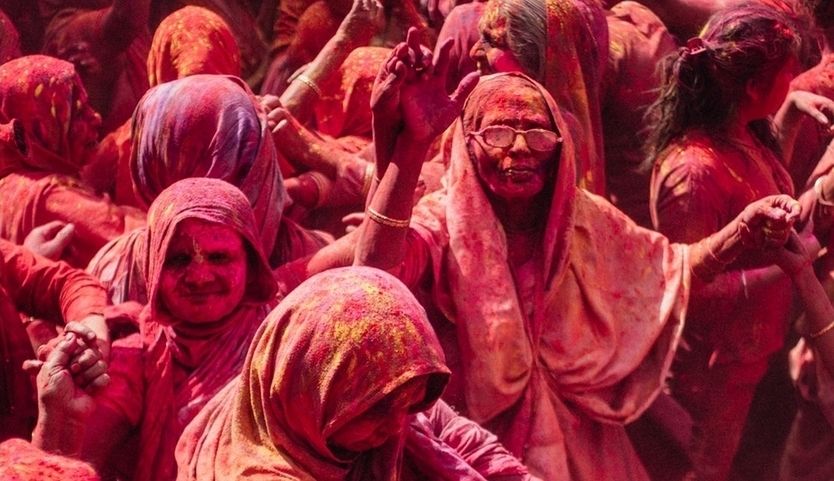The Most Dangerous Country For Women?
If you haven't heard yet, the Thomson Reuters Foundation released a report on women's safety - The World's Most Dangerous Country for Women.

If you haven't heard yet, the Thomson Reuters Foundation released a report on women's safety - The World's Most Dangerous Countries for Women. This survey, aiming to find out if things had improved since its first rendition, was a repeat of a 2011 poll which concluded that Afghanistan, Democratic Republic of Congo, Pakistan, India, and Somalia respectively were the most dangerous countries for women.
In the latest version of said report, India has the misfortune to hold the first place on the list, which goes like this:
- India
- Afghanistan
- Syria
- Somalia
- Saudi Arabia
- Pakistan
- Democratic Republic of Congo
- Yemen
- Nigeria
- United States of America
There are six areas that the report focuses on and takes into account:
- Healthcare
- Discrimination
- Cultural Traditions
- Sexual Violence
- Non-Sexual Violence
- Human Trafficking
Now, any kind of intelligence discourse on the issues prevelant in India - of which there are many, especially when it comes to women and their rights - is something I appreciate and encourage. There's a lot to talk about. This country is no safe haven for women - it is far from it. We are plagued with sexual violence, human trafficking, regressive and misogynistic "customs" and "traditions" that have constantly held women - especially those in rural areas - down. It is cruel and inhumane, but it exists.
The reason that these experts chose to rank India as #1 was because they felt as though not enough was being done to tackle the dangers women face, especially after the brutal, heartbreaking gang rape of a 23 year old woman in Delhi that shook the nation to its core. Not only that, it also took into account human trafficking - for slavery and sex, the previously mentioned "traditions", female infanticide, etc.
It is important to note that the report is based solely of the opinions of experts across various fields pertaining to the cause. The report states that out of the 759 experts contacted, only 548 replied. Monique Villa, who is the head of the foundation, stated that 41 of the experts were Indian, yet no information on the nationality or representation of the other experts was revealed.
Naturally, there are mixed opinions on the conclusions of this report. One of the biggest critiques is that it is too small of a pool for it to be considered credible - we know that 7.4% of the experts in the panel were Indian (note: their gender was undisclosed), but we have no idea about the rest. The lack of transparency is concerning. Is it a fair assessment when women who live and breathe in this country had no voice? How easily can we believe these "experts" without any knowledge of who they are and how intricately they understand the problems?
Let's take a look at some of the opinions of Indian nationals who have responded to this report.
Aarti Tikoo Singh, a senior assistant editor with The Times of India, tweeted:
The Thompson Reuters Foundation poll is based on the perception of over 500 "experts" & not on the perception of common women in India. How can Syria, where ISIS jihadis held women captive as sex slaves, be more safe for women? Why is Indian media buying statistical gibberish? https://t.co/xUZ99LgtNb
— Aarti Tikoo Singh (@AartiTikoo) June 26, 2018
Roop Rekha Verma, a professor and a social activist, had a more accepting response to the report, saying:
"I am not unhappy about this report and its findings - it is enough to make us sit up," she said. "A better methodology, rooted in intensive data and empirical work, could have been used of course, but if more than 500 gender specialists view it like this, it has to be taken seriously. These aren't perceptions from people on the street - these are well-informed experts."
Sanjay Kumar, another professor and the current Director at the Centre for the Study of Developing Societies, who specialises in Electoral Politics notes that there is government and other public data that is available for many of the parameters used in the report, which should have taken precedence over simple perception. He also pointed out that the useage of "mixed methodology" (meaning a mix of online, phone and in-person interviews) was also concerning. He opined that a more credible method would be to create categories and rank countries within those categories. He further stated:
Data, even if unreliable, should form the basis of any ranking. Perception should form the basis for a ranking only when there is no available data.
I can tell you from experience that different interview techniques always give you different outcomes. There has to be one base. It seems that in this case the interviews have been carried out on the basis of convenience - one can only assume this as no further explanation is given.
This is no way to conduct a survey - especially one that you are publicising so much. It's a shortcut and should not be taken seriously.
Joyeeta Basu, a female journalist for The Sunday Guardian, based in Delhi, tweeted:
And what is a perception poll, Thompson Reuters @ReutersWorld? Where facts don't count? What sort of experts are these who do not know about Boko Haram or ISIS sex slaves? The sad part is by labelling India as most unsafe for women you have trivialised actual crimes against women
— Joyeeta Basu (@eeta) June 26, 2018
A country where millions of women jostle for elbow space on buses, trains every workday, is anything but most unsafe country in world. But when you have pre-determined your conclusion, why let facts come in way of a nice little fiction @TR_Foundation Thomson Reuters Foundation?
— Joyeeta Basu (@eeta) June 26, 2018
Shashi Tharoor, a Congress leader, spoke about his opinion on the report, as reported by The Economic Times. He dismissed the report for making a "sweeping statement".
An interesting report by Mint uses statistical information for their analysis that no, India is not in fact the most dangerous country for women.
Some people have gone as far as to call this report "propaganda", but let's not focus on that bullshit. I'm certainly no expert with any credentials (except maybe being a woman living in urban India), but I do see why there is concern regarding the credibility of this report. It is important to take into account these factors and discrepencies before we go ahead and accept the report as the ultimate truth, but at the same time, it would be just as harmful to entirely dismiss it. Let's not take offence at the fact that our country topped the list - despite there being other countries which have outright restrictions against women - but rather understand that this perception comes from... well, truth.
No, India probably isn't the absolute worst place for a woman to be, but let's not live under the delusion that it is, if not the first, a dangerous place for women to be. In a country where in the recent past an 8-year-old girl was raped and murdered, a BJP MLA raped a 17-year-old girl from Unnao, another 17-year-old girl subsequently raped in Ghaziabad - we would do well not to sit on our asses and dismiss this report for being "offensive".
It's a slap in the face, yes, but a well deserved one.
